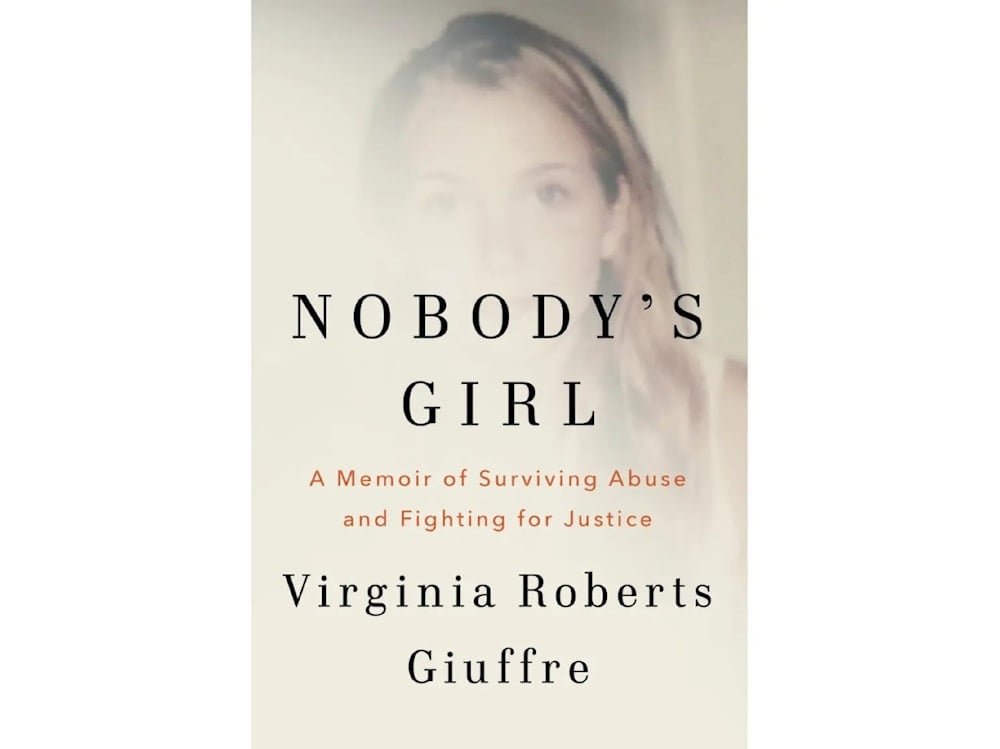Epstein victim recounts choking, sexual assault by 'well-known PM'
Virginia Giuffre’s posthumous memoir, Nobody’s Girl, delivers harrowing new claims of sexual assault by a "well-known prime minister"arranged by Jeffrey Epstein.
The New York Post on Monday revealed disturbing new allegations from Virginia Giuffre's forthcoming posthumous memoir, "Nobody's Girl: A Memoir of Surviving Abuse and Fighting for Justice," in which the victim of the late Jeffrey Epstein recounts being brutally assaulted by a "well-known prime minister."
In the memoir, Giuffre describes how the unnamed politician repeatedly choked and raped her during encounters arranged by Epstein, beginning when she was 18 years old, on his private island in the US Virgin Islands. She wrote that she begged Epstein to protect her after one of the attacks, but he refused, responding coldly that such violence was "part of her job."
"After the attack, I couldn't stay a fool. Having been treated so brutally and then seeing Epstein's callous reaction to how terrorized I felt, I had to accept that Epstein meted out praise merely as a manipulation to keep me subservient," she recalled. "Epstein cared only about Epstein."
Giuffre referred to the man only as the "Prime Minister", saying she feared retaliation if she revealed his identity, according to the New York Post. However, in previous court filings, she accused former Israeli Prime Minister Ehud Barak of sexually assaulting her, an allegation Barak has denied.
She wrote that the first encounter took place around 2002, when she was ordered to accompany the politician to a cabana. "He repeatedly choked me until I lost consciousness and took pleasure in seeing me in fear for my life. Horrifically, the Prime Minister laughed when he hurt me and got more aroused when I begged him to stop." Giuffre wrote. "For days, it hurt to breathe and to swallow."
When she begged Epstein not to send her back, he reportedly dismissed her pleas, saying, "You'll get that sometimes." She said Epstein later sent her to see the same man again, this time aboard his private jet, where she spent the encounter terrified that he would attack her again.
Giuffre wrote that the incident shattered her belief that Epstein cared for the girls he exploited. "I didn't know it then, but my second interaction with the Prime Minister was the beginning of the end for me," she said, adding that she stopped recruiting other victims after that experience.
The breaking point came when Epstein and Ghislaine Maxwell asked her to carry their child, a proposal she refused, fearing they would use the baby in their trafficking operation. She soon fled Epstein's control but said she was forever haunted by "the greedy, cruel look on the Prime Minister's face as he watched me beg for my life."
Barak, who was a longtime acquaintance of Epstein and reportedly received funding from him for a security venture, has categorically denied any involvement in Giuffre's abuse or Epstein's trafficking network.
The woman behind the story
Virginia Giuffre, born Virginia Louise Roberts in 1983, became one of the most prominent figures in the Epstein case. Her courageous testimony and tireless advocacy for survivors made her a central voice in exposing the extent of Epstein’s global trafficking network. She founded the nonprofit Victims Refuse Silence, later rebranded as SOAR (Speak Out, Act, Reclaim), to support survivors of sexual exploitation.
Giuffre’s legal victories were significant. She reached a confidential settlement with Ghislaine Maxwell in 2017 after suing for defamation, and later settled with Prince Andrew in 2022 over allegations of sexual abuse when she was 17. Despite decades of what she described as trauma, Giuffre remained outspoken about the need for systemic accountability, declaring in one of her final interviews that "the world must stop protecting powerful men who prey on children."
Her sudden death in April 2025 in Western Australia, ruled a suicide by local authorities, has nonetheless stirred widespread speculation. Police have not found evidence of foul play, though her lawyer and family have asked for privacy pending the coroner’s final report. The ambiguity surrounding her passing has only deepened the public’s mistrust in a system many believe continues to shield powerful individuals implicated in Epstein’s crimes.
Secrets, power, accountability
In recent years, the scope of Jeffrey Epstein's network and the depth of his relationships with prominent individuals have gained renewed attention. Public records and archival reporting show that Trump and Epstein maintained a social friendship beginning in the 1980s and 1990s, appearing at the same parties and even flying together in 1997.
While Trump insists they "fell out" years ago and says he was "not a fan" of Epstein, the strands of their connection have become a focal point as investigators and lawmakers continue examining who in Epstein's circle may have been involved.
Meanwhile, the so-called Epstein files, thousands of pages of unsealed documents, flight logs, and depositions, have fueled speculation about the true extent of the trafficking network and the identities of those connected to it. Some public figures, including Elon Musk, have alleged that Trump's name appears in the unsealed records, suggesting this may explain delays in releasing all materials.
A joint Department of Justice and FBI review, however, found no definitive "client list" identifying every beneficiary of Epstein's operations, though critics say large gaps in transparency and accountability persist.
Read more: Prince Andrew gives up Duke of York title after Epstein fallout
The latest developments in the case of Ghislaine Maxwell, Epstein's longtime associate, have renewed those calls for clarity. In October 2025, the US Supreme Court declined to hear Maxwell's appeal of her 2021 sex-trafficking conviction, leaving her 20-year sentence in place.
Earlier that year, she was quietly transferred from a Florida prison to a lower-security facility in Texas, sparking debate about whether she is cooperating with investigators. Maxwell has since offered to testify before Congress on Epstein's network, but only in exchange for immunity from further prosecution, a proposal lawmakers have so far rejected.

 6 Min Read
6 Min Read











